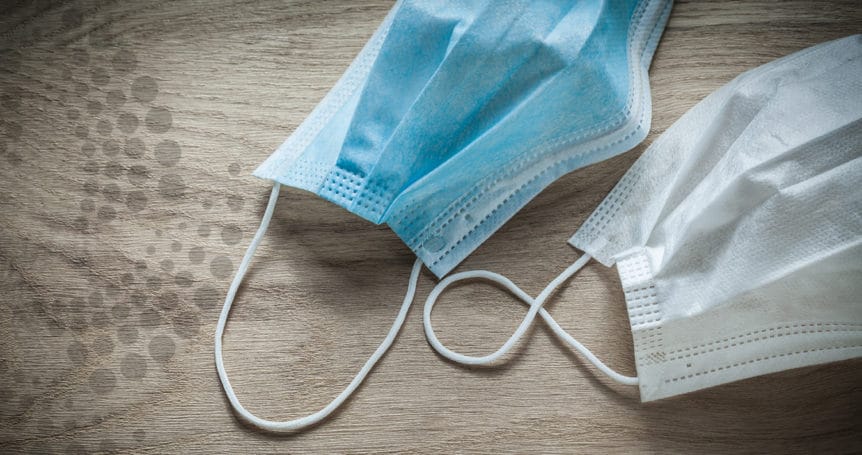Call Toll-Free 888/267-5669, Ext. 1 Ask an Information Specialist
Online Resources and Support
Coronavirus Disease 2019 (COVID-19) CDC Webpage
COVID‐19 Helping Children and Families Cope
Frequently Asked Questions
The National Limb Loss Resource Center is fully operational. The Resource Center staff are receiving and handling calls and email inquiries from their remote work locations. We want to continue to ensure we can provide physical materials to our community safely and efficiently, so we have obtained a third-party fulfillment company that is on top of new and developing safety protocols surrounding COVID-19. You can continue to reach out to the Amputee Coalition staff at 888-267-5669.
If you have questions or need resources, you can contact the National Limb Loss Resource CenterÒ using our Ask an Information Specialist form or by calling 888-267-5669, ext. 1. We have also created Community Connections which is a new, searchable online database that identifies services, resources, and support at the national, state, and local levels.
As the Amputee Coalition learns of monthly support group meeting cancellations, we will update our Support Group Meeting Calendar. We encourage all interested support group attendees to contact a registered support group from our Support Group Network prior to all monthly meetings to learn if the meetings have been cancelled or moved to a virtual meeting.
If you are a Support Group Leader and want to still keep your group members connected and engaged, we encourage signing up for a free conference call account with FreeConference.com so that your support group members can spend time together virtually. Other options for phone or video conference support group meetings include Google Hangout, Skype, and Zoom.
If you are interested in starting a new Support group, or if you have questions, please reach out to Peer Support at peersupport@amputte-coalition.org
Our free app offers in-app text messaging and in-app video chatting while providing Certified Peer Visitors who are registered app users a convenient method for scheduling, conducting, and reporting peer visits. The Support App will work on both Android and iOS mobile devices and is available on the Apple App Store and Google Play Store. This app is also available using a desktop or personal computer through a Web browser.
Virtual peer visits can also be requested to the Amputee Coalition Peer Support Department using our online Request a Peer Visit form, calling 888/267-5669, ext. 8124, or emailing peersupport@amptuee-coalition.org. Please visit our How to Find Support webpage to learn more about the various ways to request and receive virtual peer visits.
Below are some tips and guidance from the National Alliance on Mental Illness (NAMI), the nation’s largest grassroots mental health organization, and the Centers for Disease Control and Prevention (CDC), the nation’s health protection agency, to help your emotional well-being during the COVID-19 pandemic.
- Manage how you consume information by equipping yourself with information and resources from credible sources, such as the CDC and the World Health Organization (WHO). It is also helpful to set limits on when and for how long you consume the news and information that is being provided on a consistent basis. Especially in the world of social media, it is extremely important to verify all sources of information and make sure they are reputable.
- Maintaining a healthy daily routine can be beneficial for your mental and emotional health. Even small actions, like making the bed and getting dressed, can make a difference for your own well-being. If you are able to work from home, take small breaks throughout the day or in between shifts.
- Try to practice good sleeping habits. The lack of sleep can often contribute to stress and anxiety and can be detrimental to your mental well-being.
- Exercise is a great way to care for both your mind and body. If you have been cleared by a medical professional to participate in exercise, continue to exercise while practicing social distancing. Gyms and most parks have been closed due to the pandemic so you may need to find alternative methods for physical activity. Even small movements like stretching can be beneficial.
- Become creative with staying connected to family and your social networks. Social distancing has changed the ways that we interact with each other. Thanks to technology, there are several ways that you can still interact with your family and social groups:
- Stay connected to friends and family via phone, email, social media, and video calls.
- Utilize platforms such as Google Hangouts or Zoom to conduct virtual activities like virtual dinners or coffee breaks.
- Regularly check in with family and friends who may have more limited social contact.
- Express how you are feeling with the people you trust.
- If talking about COVID-19 affects your mental health, set boundaries on how often and when you would like to discuss the pandemic.
We’ll be in touch as those virtual events are scheduled. You can always check the monthly “On the Move” newsletter in your email for updates.
If you’re interested in attending a CPV training, please contact peersupport@amputee-coalition.org.
If you’re interested in attending Lead Advocate training, please contact advocacy@amputee-coalition.org
- Don’t overdo media consumption.
- Talk to your children and other family members about the pandemic. Answer their questions honestly and assure them that your goal is to keep everyone safe.
- Check-in with your child’s school and teachers to learn how each are managing service delivery. You can find tips on homeschooling your children here.
- If your child has a chronic or acute medical condition, see if your child’s healthcare provider is providing telehealth options. Your child’s healthcare provider can also help you determine the best way to obtain needed equipment, supplies, medications, etc.
Self-care
- Take breaks when you can. Respite and relaxation options may no longer be available during the pandemic. This might mean stepping outside (if you can) for five minutes for fresh air and sunshine or watching YouTube videos to give yourself a short mental break.
- Try to stay connected to your family and social groups virtually. Phone calls, texting, video chatting, and email are just some of the ways we you can stay connected during this time of social distancing.
- Don’t be afraid to ask for help or support. The Amputee Coalition has a nationwide network of support groups, which are moving to more virtual meetings, as well as Certified Peer Visitors that can conduct visits via the phone or through the Amputee Coalition Support App, which is available via the Apple Store and Google Play.
Reassure your children
- Try to create routines in this new normal. Children are reassured by structure, so you can attempt to create new routines for your children, such as the proper way to wash your hands and behaviors in line with social distancing.
- Encourage your children to talk about their feelings or come up with creative ways in which they can express their feelings. Creating artwork or journaling are two different ways in which a child can express his or her feelings in a constructive way.
- Just like you are experiencing isolation from your family and friends, so are your children. Brainstorm with your child the different ways they can stay connected to friends and family via phone calls, texting, and video chats.
We also have created Community Connections, which is a new, searchable, online database that identifies services, resources, and support programs at the national, state, and local levels.



